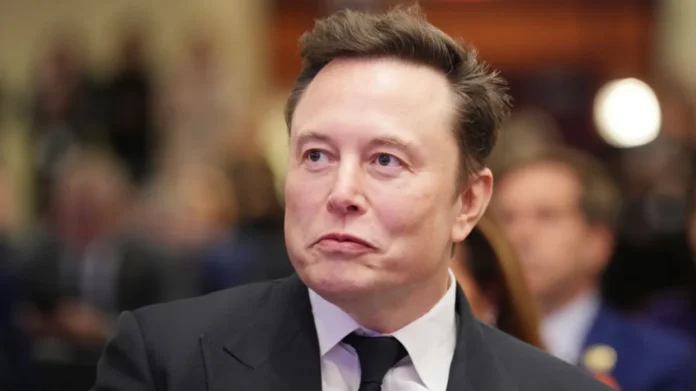Billionaire Elon Musk is facing heavy criticism after news outlets reported his rumored drug use has prompted his lawyers to advise he not attain a higher security clearance at SpaceX.
Musk’s legal team explained that pursuing a higher security clearance could require him to answer government questions about his interactions with foreign nationals and prior drug use, as reported by The Wall Street Journal.
According to insiders, lawyers and executives considered scenarios where Musk might unintentionally reveal sensitive information to foreign officials he regularly communicates with. The Journalreported in October that Musk has maintained consistent contact with Russian President Vladimir Putin since late 2022.
Musk’s current “top-secret” clearance, which SpaceX relies on for its growing national-security business, took years to secure after his public marijuana use on a 2018 appearance on The Joe Rogan Experience.
Concerns about Musk’s eligibility for a higher clearance arose after the Journalreported in June of last year about his use of ketamine, according to a person familiar with the matter. SpaceX’s legal team ultimately decided that applying for a higher clearance posed significant risks, including the possibility of Musk being denied or losing his existing top-secret status.
Musk’s top-secret clearance grants him access to certain national-security secrets, but he lacks the specialized authorizations required for most SpaceX employees working on classified programs, according to sources familiar with the matter.
Over 400 SpaceX employees hold clearances for “sensitive compartmented information,” a designation for highly restricted intelligence about sources and methods, one source explained. A smaller group has access to even more restricted data classified under special access programs.
Without these additional authorizations, Musk’s clearance does not allow him access to specific details about SpaceX’s Starshield program, which provides satellite hardware and services to national security agencies, the sources said. He is also barred from entering most SpaceX facilities where classified projects are conducted and rarely has access to classified information about the payloads his rockets launch into space, including sensors and other equipment on spy satellites.
Many have pointed out that the reports demonstrate how unfit Musk is for a governmental role.
Earlier this year, SpaceX lawyers warned company executives that a denial of a higher security clearance for Musk could have broader consequences for the company, according to sources familiar with the situation. If Musk failed the vetting process, his current top-secret clearance could have been revoked.
In that scenario, SpaceX might have been required to seek a government waiver to continue certain national security projects, given Musk’s role as the company’s senior management official. Additional security measures may also have been necessary to shield Musk from sensitive aspects of SpaceX’s operations.
SpaceX was prepared to address government inquiries regarding Musk’s reported drug use after the Journal published its findings, but the Pentagon never pursued the matter. Company executives ultimately determined there was no need to self-report based solely on media coverage, according to individuals familiar with the clearance discussions.
















